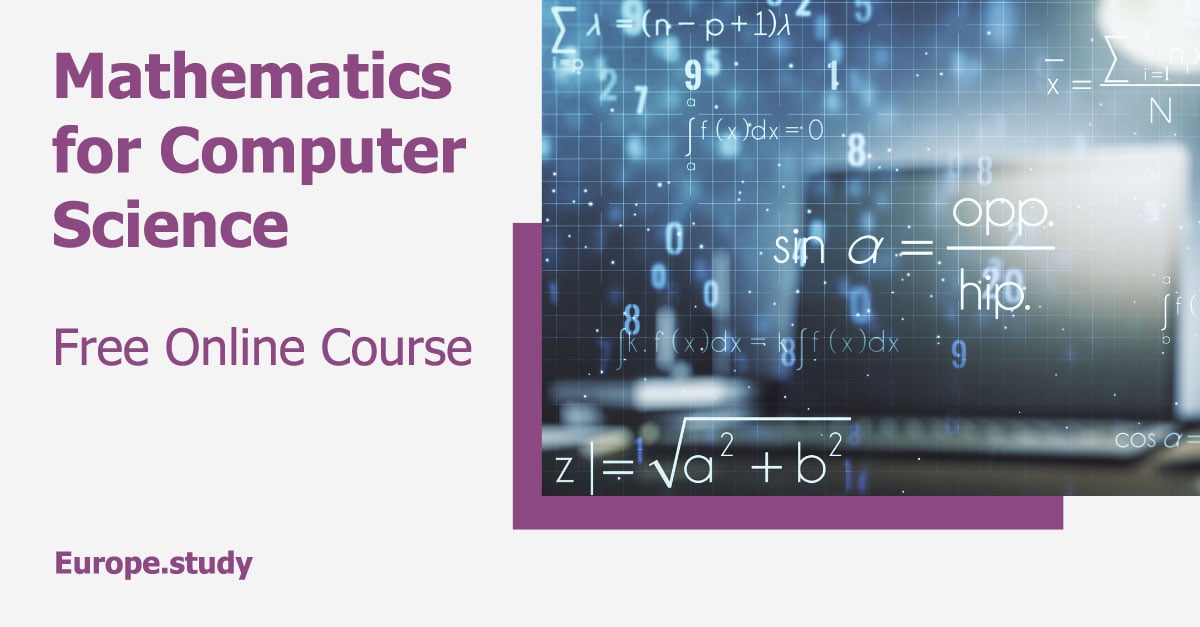For individuals who possess a love for mathematics, the decision to embark on a journey in computer science often arises as an intriguing proposition. Mathematics and computer science are inextricably linked, with the former serving as a foundational pillar for the latter. Yet, the inquiry “Should I study computer science if I love math?” invites a multifaceted exploration of not only what computer science entails but also how mathematical principles permeate its disciplines and applications.
Mathematics can be conceptually seen as the universal language of logic, enabling the formulation of abstract ideas and the establishment of rigorous proofs. In contrast, computer science is a realm that melds logical reasoning with the practicalities of computation and problem-solving. This intersection becomes especially salient when contemplating how mathematical sophistication can enhance one’s competence within the field of computer science.
At the core of computer science lies the study of algorithms—methodical processes and rules for solving problems. The development and optimization of algorithms fundamentally draw upon mathematical principles such as combinatorics, calculus, and graph theory. For those enamored by the elegance of mathematical structures, delving into algorithm design can be particularly refreshing and intellectually satisfying. It offers an opportunity to apply abstract mathematical theorems to tangible computational challenges. The beauty of crafting efficient algorithms from theoretical underpinnings can evoke a sense of exhilaration for the mathematically inclined.
Moreover, computer science encompasses the field of data structures, which serves as a conduit for organizing and managing information. Mastery in this domain requires a sound understanding of mathematical concepts, including set theory and asymptotic analysis. For instance, comprehending how different data structures can optimize the efficiency of data retrieval echoes the meticulous precision found in mathematical proofs. Such insights allow one to derive connections between theory and practice, revealing a deeper appreciation of both disciplines.
Another significant aspect is the burgeoning domain of machine learning and artificial intelligence (AI). This interdisciplinary field leans heavily on statistics, linear algebra, and probability theory—areas steeped in mathematical rigor. Students with a strong mathematical foundation are exceptionally well-suited to engage with the complexities of machine learning algorithms. The ability to not only comprehend but also innovate within these frameworks is poised to create a sense of empowerment in tackling real-world problems. Hence, for those who are intrigued by the relationship between mathematical abstraction and practical application, computer science can offer a fertile ground for exploration and discovery.
However, one must also consider the practical implications of choosing computer science as a major in conjunction with a passion for mathematics. The career landscape for computer scientists is remarkably diverse. Various fields—ranging from software development to data analysis—demand a quantitative aptitude that is often enhanced by mathematical training. Furthermore, roles in research, where mathematical rigor is paramount, signal an increasing need for professionals who can navigate both domains adeptly. The job prospects are abundant, indicating that a passion for mathematics can indeed translate into a promising career trajectory within the tech industry.
Additionally, the intellectual satisfaction derived from coding is often overlooked. Programming can be framed as a form of mathematical expression, where each line of code can be seen as an equation striving toward a solution. Enthusiasts may find parallels between the logical progression inherent in mathematical proofs and the way algorithms unfold in code. Thus, the act of coding might satisfy not only technical curiosities but also the innate desire for structured problem-solving that characterizes mathematics enthusiasts.
It is crucial, nonetheless, to acknowledge potential challenges. A robust command of mathematical concepts does not guarantee an easier transition into programming or computer science’s more abstract components. It takes time, perseverance, and a willingness to embrace frustration as part of the learning process to cultivate software engineering skills or to develop a sophisticated understanding of computer architecture. For some, the quantitative demands of computer science can initially seem daunting and may operate beyond the traditional comfort zone associated with pure mathematics. However, overcoming these hurdles often yields immense intellectual gratification and personal growth.
To encapsulate, for those who are passionate about mathematics, studying computer science offers an alluring avenue to further explore complex concepts while applying them to tangible problems. The interdependence of the two fields creates a unique environment where mathematical prowess can be leveraged to solve contemporary challenges, find innovative solutions, and contribute meaningfully to technological advancements. Furthermore, the diverse career pathways available resonate with the analytical and logical skills nurtured through mathematical training, ensuring a promising professional future.
In conclusion, the love of math should indeed inspire a plunge into computer science. For those prepared to engage deeply with both the abstract and the practical dimensions of logical reasoning, such a decision can manifest as an intellectually fulfilling journey. Computer science not only complements mathematical passion but also enhances and expands upon it, ultimately nurturing a highly rewarding academic and professional endeavor.












